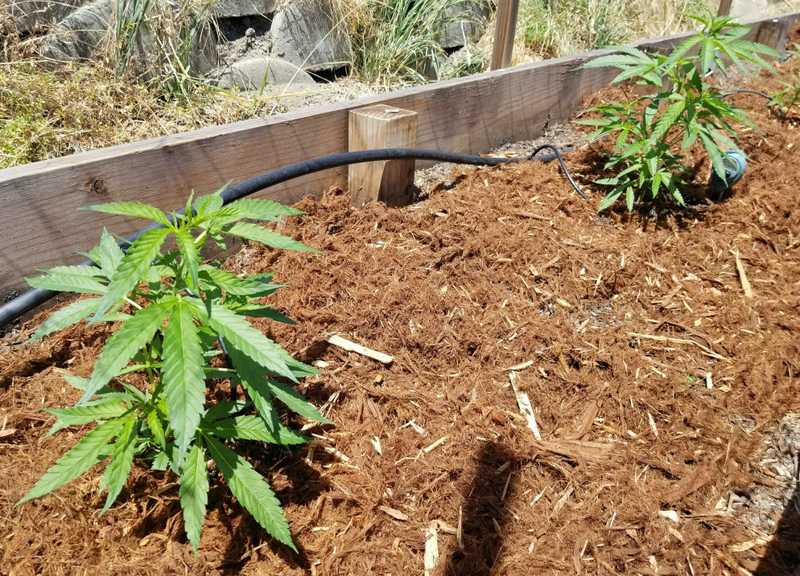June was a critical month for recreational cannabis legalization in Canada. After the Senate passed Bill C-45, albeit with 48 proposed amendments, Prime Minister Justin Trudeau announced that marijuana legalization will be sweeping across the country on Oct. 17, 2018.
This signifies a step that only one other country in the world—Uruguay—has taken. But the process of cannabis legalization isn’t as simple as it may seem.
More specifically, the uncertainty surrounding the legal status of cannabis home grows has led to an apparent standstill between Trudeau and Canadian senators.
Federal Stance on Cannabis Home Grows
Canada’s Health Minister Ginette Petitpas Taylor has taken the perspective that recreational marijuana should be treated like substances such as medical cannabis, tobacco and alcohol, which can all be grown and produced in Canadian homes.
Taylor added that the provinces have the ability to limit the number of cannabis plants that can be grown at home down to one, as opposed to the federally allowed four. But a zero-tolerance provincial legislation, allowing provinces to ban home grows altogether, would cause national frictions.
On June 13, the Trudeau government rejected one of the Senate’s major amendments that would have allowed provinces to prohibit marijuana home grows altogether.
Senators Disillusioned by Trudeau's Decision
The ultimate fate of Bill C-45 rests with the independent senators appointed by Trudeau. Though the government accepted 27 of the 48 amendments, these were mainly technical adjustments.
The independent senators are disillusioned by Trudeau's rejection of the Senate's home-growing amendment. They said that they’ll have to weigh many competing concerns while deciding whether to push the acceptance of those rejected amendments. This could lead to further delays in cannabis legalization.
As some independent senators pointed out, home grows and other cannabis-related issues pit two ideas against each other: that the government that campaigned on legal cannabis should be allowed to keep their promise versus the complicated and emotional issue of the rights of provinces to govern themselves.
If the Senate passes the bill back to the House of Commons to re-consider these amendments, it could set the stage for a parliamentary tug of war.
Quebec & Manitoba Set to Prohibit Cannabis Home Grows
Quebec and Manitoba have already introduced provincial legislation that explicitly prevents recreational marijuana cultivation in homes. Provincial authorities say these decisions stem from the difficulties of regulating and policing marijuana grown in homes, the potential for people to illegally grow and sell cannabis, and exposing underage youth to recreational marijuana in their homes.
Government officials in both Manitoba and Quebec have confirmed that they're ready to fight the federal government for the right to prohibit cannabis home grows. This battle between the provinces and federal government is likely to lead to consideration before the courts.
So, how would this home grow prohibition impact the recreational cannabis retail industry? In Manitoba and Quebec, provinces that would likely ban home grows if the Senate’s proposed amendment is adopted, this would mean that recreational marijuana consumers would only have the options of purchasing from a cannabis store or illegally from a dealer. It would also mean that other provinces and territories would have the ability to prohibit the cultivation of home grows altogether.
It’s the role of the Canadian Senate to protect the divisional powers of the provinces, and many Conservative senators are standing behind Manitoba and Quebec. In light of this divisiveness though, the Canadian Senate usually defers to the House of Commons when passing bills. But it's possible that Bill C-45 will cause an unprecedented paradigm shift in the Canadian government.
Cannabis Home Grows in Alberta, B.C. & Ontario
British Columbia (B.C.) and Alberta say their recreational cannabis legislation will allow residents to cultivate the federal limit of four cannabis plants at home.
Ontario, on the other hand, elected a new government on June 7 and is waiting for Premier Doug Ford to make a decision regarding the limit or potential ban of marijuana home grows. In debates and interviews, he’s hinted at consulting with different communities before giving a definitive answer.
Ford has claimed that he’ll also seek input from the federal and Ontario provincial real estate associations regarding cannabis cultivation at home. So far, Ontario landlords are resisting allowing any number of plants be grown in homes, bringing up concerns such as increased electricity costs and damaged property.
RELATED: IS LEGALIZATION A LANDLORD’S WORST NIGHTMARE?
Uncertainty on the Path to Cannabis Legalization
Though Canadians can remain hopeful that they'll be able to legally consume recreational cannabis starting Oct. 17, the path to legalization is looking less than clear.
The federal government has been accused of rushing marijuana legalization when provinces remain largely unprepared for legal and social challenges sanctioned cannabis will bring. It seems the issue of cannabis home grows is now a lightning rod for the broader issue of provinces’ rights to govern themselves. It’s a complicated issue that won’t be easy to resolve.
